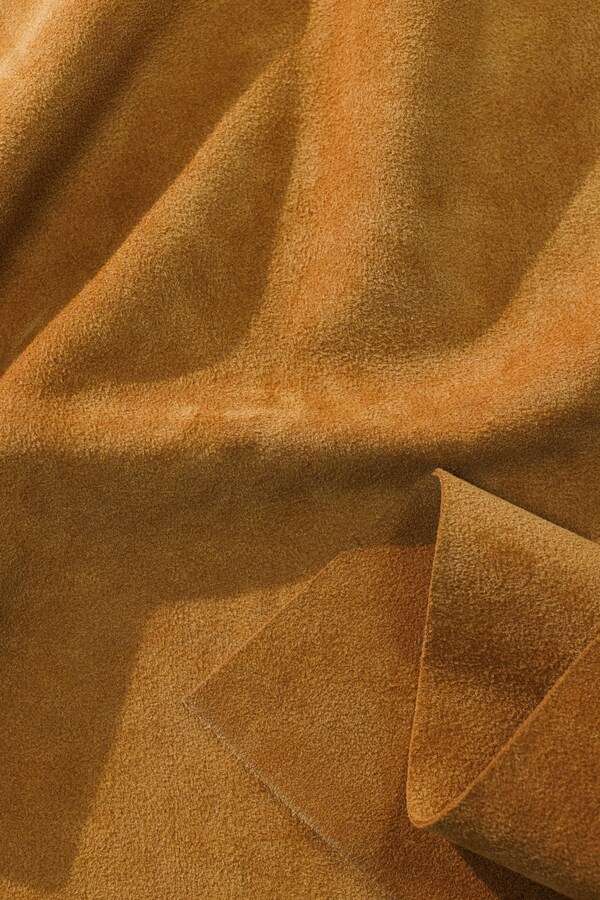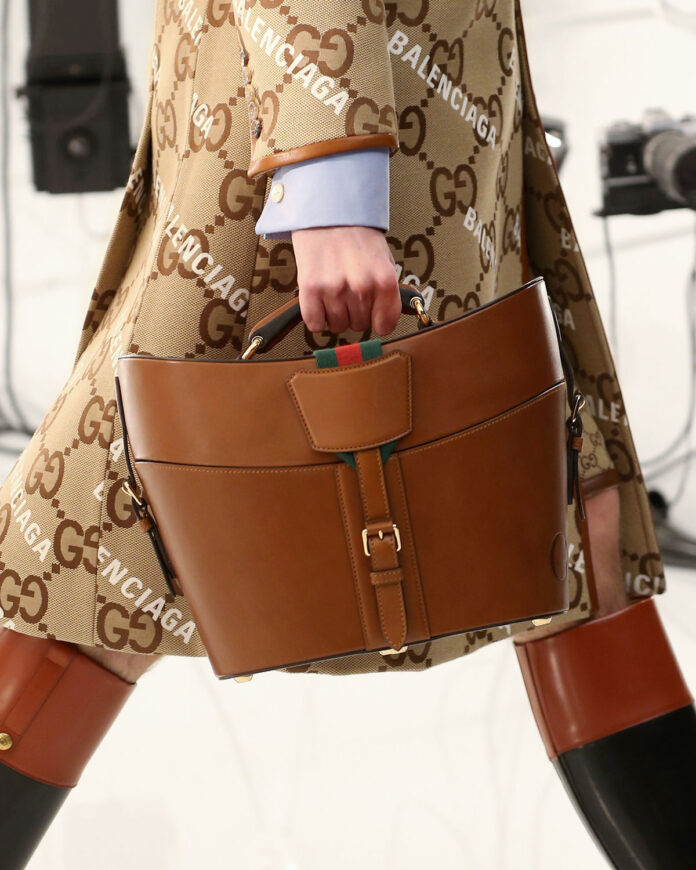As states push to ban cultivated meat grown in a lab, slipping under the radar are companies using the same tech to make leather and other sustainable materials without the need for animals.
The cell-based meat industry has been hailed as a revolutionary solution to the environmental and ethical dilemmas posed by traditional livestock farming — by growing the meat without the animal. However, the tech has encountered significant hurdles in recent months, even despite regulatory approval.
It’s been more than a decade since the first lab-grown beef burger made headlines, but we are still likely several years — if not decades — away from cultivated meat routinely appearing on our plates, if ever. But that’s not the case for all cultivated tech. In fact, you could be wearing lab-grown leather or even lab-grown fur a lot sooner than you’re eating lab-grown burgers.
Cell-based meat challenges
After Good Meat and Upside Foods earned USDA regulatory clearance last summer for their lab-grown cultivated meat, both made their cell-based chicken restaurant debuts — Upside Foods with Dominique Crenn in San Francisco, and Good Meat with José Andrés in Washington D.C. But both have since been pulled from the menus after the limited edition, pricey runs. Cultivated meat is also off the market in Singapore, which became the first country to approve cultivated meat — Good Meat’s lab-grown chicken got the world’s first clearance there in 2020.

Despite the enthusiasm and billions of dollars poured into the tech, its future is more questionable than ever. Last month, Upside Foods, which has led the sector in fundraising at more than $600 million, announced its plan to scrap construction of Rubicon, a large-scale cultivated meat plant slated to open in Glenview, Illinois. It said the decision was driven by cost-efficiency and operational streamlining.
Bills in Alabama, Arizona, Florida, and Tennessee aimed at banning the sale of cultivated meat further add to the hurdles and give already hesitant consumers another reason to turn their noses up to the tech. According to one study done in the U.K., 59 percent of consumers said they would “not like to try” lab-grown meat if it became available, and 38 percent said they “would definitely not like to try” the meat.
Cell-cultured materials
In contrast to the struggles of the cell-based meat industry, though, the cell-cultured materials market is witnessing a significant increase in interest and investment even despite a plethora of low-impact plant-based alternatives like cactus, apple, and pineapple leather or the fungi-based mycelium already on the market. But cultivated leather stands out for its ability to work identical to conventional leather, with companies including VitroLabs, Modern Meadow, and Qorium leading the charge.
Dutch-based Qorium’s recent announcement of substantial milestones, including securing investment from Brightlands Venture Partners and Sofinnova Partners, underscores the confidence investors have in the potential of cell-cultured leather. The appointment of Michael Newton, a former Nike senior executive, as Chief Executive Officer at Qorium, signals a strategic move to blend tradition with cutting-edge science to transform the leather industry sustainably. “Qorium is founded on the conviction that when tradition and talent meet cutting-edge science, true category transformation can happen,” Newton said in a statement. “My years at Nike were all about innovating product to unleash human potential; I’m thrilled to be taking this next logical step, where incredible science can deliver a truly sustainable future through high quality, excellent products that consumers covet.”

The company’s founding leadership includes cell-cultured meat pioneer Mark Post as Chief Scientific Officer. Post is the scientist behind the world’s first lab-grown burger, which debuted in 2013 (and cost more than $250,000). While other platforms like California’s VitroLabs have raised more money to date than Qorium, this unique combination of expertise puts the platform firmly in the race to scale lab-grown leather.
VitroLabs, which has partnered with Gucci parent Kering and received backing from actor Leonardo DiCaprio, has raised more than $54 million for its stem cell-based technologies for growing leather, and New Jersey’s Modern Meadow, which is also working on lab-grown leather using yeast fermentation and skin cells among other materials, has raised more than $180 million.
“Over the last two years, we have been laser-focused on pushing our tissue engineering platform in order to increase efficiency and to optimize tissue production to obtain the look, feel, and performance of traditional leather at scale,” VitroLabs Co-Founder and stem cell scientist Dr. Dusko Ilic said in a statement in 2022. “With several major breakthroughs in the areas of bioreactor design, bioprocess and facility design, and cell culture development, we are now on our way to a scalable process that delivers the desired premium qualities, forging a path towards the ultimate goal of industrialization.”
The same tech is also being explored for fur — a controversial material that, prior to the recent Mob Wife trend, had largely fallen out of fashion. Most major fashion houses have eliminated fur from their collections, but holdouts in the LVMH group including Fendi and Louis Vuitton, may be first to market with lab-grown fur, according to an announcement made in 2022. Carole Collet, a design professor at Central Saint Martins and director of Maison/0, which works with LVMH told Vogue Business that they’re not interested in the hype of a new fiber for the sake of a new fiber. “We’re interested in new, radical, sustainable fiber,” she said. “We’re far from being sustainable in the way nature is. The more we look at how nature works, the better.”
Why cell-cultured leather may succeed where meat struggles
Several factors contribute to the optimistic outlook for cell-cultured materials compared to cell-based meat. First, the production of cell-cultured leather faces fewer regulatory obstacles, allowing for faster market entry. Additionally, the environmental benefits of reducing the livestock industry’s footprint resonate strongly with both consumers and industry stakeholders, making the case for adoption compelling. Moreover, the scalability of cell-cultured leather production is less daunting than that of meat, with current technological advancements already allowing for the creation of substantial quantities of material. The aesthetic and functional qualities of cultivated leather, crucial for its acceptance in the fashion and automotive industries, have been met with enthusiasm, further buoyed by growing consumer demand for sustainable and ethically produced materials.
“Biotech fashion draws from nature, merging science and aesthetics to provide a sustainable, enduring solution to the industry’s environmental challenges,” Modern Meadow CEO Catherine Roggero-Lovisi said in a recent interview. “Who wouldn’t adore a handbag that feels like leather but is animal-free and sustainable?”

VitroLabs CEO Ingvar Helgason says at a time when environmental stewardship is more important than ever, biotech companies have the opportunity to lead the way in changing how we produce materials and build supply chains, “working hand in hand with existing artisans and craftspeople who are the cornerstone of the $400B leather goods industry.”
Like VitroLabs and Modern Meadow, Qorium’s progress, which is also highlighted by significant investment and strategic leadership appointments, further cements a likely future for cell-cultured technologies to aid in the rescue of the problematic materials sector. Even though food has been the focus for much of the lab-grown tech, as the protein sector is still finding its footing, it may benefit from letting cultivated materials take the lead in acclimating consumers to the tech and benefits. Like the food sector, the fashion industry produces a significant amount of greenhouse gas emissions (ten percent), but the sector has struggled to get a hold of the biggest producers, chiefly fast fashion labels like Shein, H&M, Zara, and Boohoo.
According to Helgason, there has been an explosion of companies developing alternative leather materials and likely many more to come. Helgason says cultivated animal leather preserves the biological characteristics that the industry, craftsmen, and consumers know and love about leather, “while eliminating the most environmentally and ethically detrimental aspects of the conventional leather manufacturing process associated with its sourcing.” VitroLabls is also exploring a process that could reduce the chemicals used in conventional leather tanning by 90 percent, further adding to the tech’s environmental sustainability. Helgason says by launching the first production of cultivated leather, the company will hit a major milestone as part of its mission to lead the shift toward “a more sustainable future.”
Related on Ethos:


